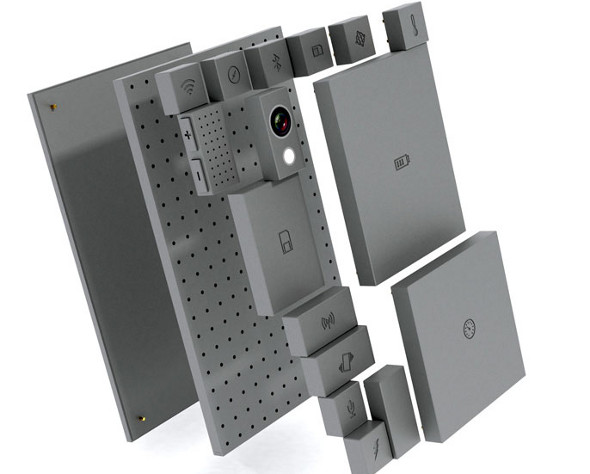Phonebloks Skeptic
While I can appreciate the sentiment behind Phonebloks, I am deeply skeptical of its core idea:

The Other Guys
If you've ever looked inside a washing machine or dryer, you'd know what a mature technology looks like. A big empty frame to hold the drum, a tiny little circuit board hooked up to buttons and knobs, a motor, some basic mechanics and a lot of empty space.
The inside of a smartphone is a little different. Take a look at the iPhone 5 image from the iPhone 5 Teardown. Every year, Apple makes a bunch of tradeoffs between size, heat, price, cost, quality and decides what they can put in the next phone, and then jams it all together as tightly as possible to make the smallest, lightest, thinnest phone that they can with a reasonable battery life and within an acceptable price range.
Even if next year, every component in the iPhone 5 was twice as good and twice as small for less money, Apple would simply include more battery, add another sensor, or otherwise consume the space. The mobile market is not mature, and a bunch of companies are trying to produce the best device they can every year, and that means using every little bit of space and size and weight they can.
All smartphones are this way. Look at Motorola/Google's Moto X, Samsung's Galaxy S4. They make slightly different choices, but ultimately they're still trying to deliver the most and do it as thin and light as they can.
Phonebloks
Phonebloks proposes to make a modular phone that is upgradable, maintainable, that comes in little blocks of modular equipment that you snap together like lego. It sounds great, but it sounds like something totally not in keeping with a realistic assessment of the technology involved.
Take the iPhone 5 apart, take each component and make it a cube or some kind of rectangular prism, sealed inside its own little shell with connectors. Replace those super-thin ribbon cables with a connecting plane that can route anything to anywhere. Make each component compatible with a wide array of other components rather than being precisely matched to a known set of components up front. Add a little space for some kind of modular locking system that can hold everything together tightly as you're out and about with your phone.
Now you have a phone that is is maybe 20% wider and taller, 50% deeper, significantly heavier. It has little hairline cracks throughout, even if the modular locking system is good. If you're lucky, all the pieces work together and run on a single well-regarded operating system like Android even though you are apparently able to switch components at will.
And that's if the idea ever makes it this far, which it won't.
PC Bloks?
I'm sure that Dave Hakkens is a nice guy. I agree with some of his concerns. Electronic waste is a problem and disposable devices encourage electronic waste. Trendy, fast-moving areas of technology are definitely a significant contributor to that.
And, hey, say that he's right and I'm wrong. If Dave Hakkens and whoever he gets onside with his idea are able to produce a phone that is even vaguely competitive with a current-generation smartphone (at the time that he pulls it off), then it would be a real accomplishment, and one I'd be happy to praise in detail.
But the proposal as it stands strikes me as a little naive, and I'd be stunned to see it go anywhere for years. Even desktop computers haven't made it this far, and their technologies are more mature and more ripe for this sort of disruption.
I'd be much more interested in seeing Apple, HP, Canonical or someone totally new try this with the desktop PC space, because I'd be more inclined to believe that it could happen.
Good luck, Dave.
Update: Motorola's Project Ara seems to be taking this challenge to heart. I remain deeply skeptical.